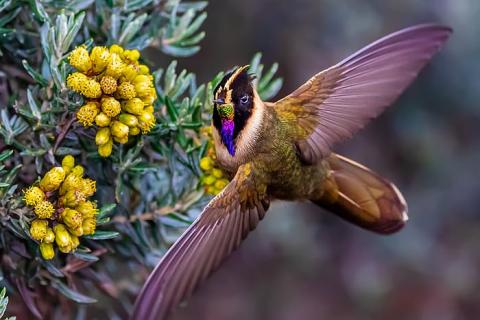How are IPBES reports used in policymaking and related work? Tell IPBES about your experience

IPBES wants to find out how its reports are used for decisions on policy and in work related to policy.
Your information will help IPBES
- better understand whether and how policymakers use its assessments and related outputs.
- identify tools, methodologies, and activities that support the use of IPBES assessments.
IPBES is interested in experiences
- nationally and/or subnationally (locally).
- by a wide range of stakeholders: including governments, individual scientists, Indigenous Peoples and local communities, as well as institutions, organizations and groups working in the field of biodiversity and ecosystems.
Your participation is invaluable in helping IPBES support policy for nature. The deadline is 8 July 2024.
>> See the official notification (EM/2024/29)
>> Fill in the survey (You will need to log in to the IPBES website, which is different from your ONet login. Registration is free.)
How does IPBES support policy?
Alongside its assessments of biodiversity and nature's contributions to people, IPBES does a range of related work. That includes supporting policy, according to the current workplan:*
- Activities to increase the policy relevance of IPBES assessments. Examples include
- workshops with practitioners.
- making IPBES assessments more relevant to policy.
- Activities to promote and support the use of IPBES products in decision-making. Examples include
- publishing factsheets that concisely summarise IPBES assessments.
- working with (sub)regional science-policy platforms, networks and assessments.
- showcasing successful examples in the IPBES impact-tracking database (TRACK).
- Discussing the future of this part of IPBES's work with several stakeholders: for example by developing a concept note for the IPBES Plenary (as ONet has reported) and this survey.
>> Fill in the survey (You will need to log in to the IPBES website, which is different from your ONet login. Registration is free of charge.)
*The workplan is part of of the IPBES Plenary's Decision IPBES 10/1 that you can download as a pdf or docx.
Photo by Ann and Rob Simpson on iNaturalist: Buffy helmetcrest (Oxypogon stuebelii) visiting a Frailejón (Espletia), its favourite plants. This rare and vulnerable hummingbird is endemic to a small area of the Andes. Alongside insects, it feeds on nectar in exchange for pollination. To learn more about wild pollinators, see the IPBES pollination assessment that galvanised policymakers in 2016.
